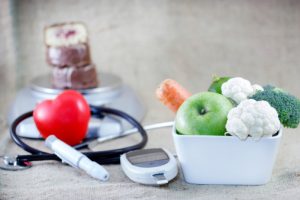
A team of researchers at Washington University School of Medicine in St. Louis knew that some treatments for type-2 diabetes make the body more sensitive to insulin, which is the hormone that lowers blood sugar. However, working with mice, they were able to shut down the liver protein involved in making glucose and thus lower blood sugar levels. It’s an approach they think might work in people with type-2 diabetes.
The lead researcher Brian N. Finck, Ph.D., said, “We think this strategy could lead to more effective drugs for type-2 diabetes.” He went on to suggest that shutting down glucose production has the potential to help millions of people suffering from diabetes.
Currently, there is a company in the U.S. that is conducting clinical trials on a drug compound as a treatment. The new study shows that the compound works by stopping protein that is vital to glucose production in the liver. Doctors have always understood the blood sugar and liver connection – the liver acts as the body’s glucose holder – but now they also see how it can be adjusted to improve health if needed.
During the experiment, the researchers cut sugar production in the liver cells by preventing a protein from transporting pyruvate – a building block of glucose – from the bloodstream into the energy areas of liver cells, referred to as mitochondria. Previous studies indicated that interfering with pyruvate could possibly limit glucose production, but this study is the first to show the key role played by the pyruvate transport protein.
In addition to addressing diabetes, experts believe adjusting pyruvate transport may also be able to help people with fatty liver disease, a condition common in individuals with obesity.
Blood sugar and liver
If your blood sugar stays over 240, that generally means that it is too high, as opposed to too low. High blood sugar happens when people don’t have enough insulin in their body. Sometimes it occurs when people eat too much or don’t exercise enough. In some cases, medications can cause high blood sugar. Careful steps should be taken to reduce blood sugar levels if you think they are too high.
Glucose production in the liver is essential to our good health. Too much or not enough can throw our body out of rhythm and lead to a host of illnesses. To protect our liver from diabetes we don’t have to do anything drastic. There are safe, simple ways to preserve our health.
How to lower your blood sugar naturally
Don’t Overeat – If you want to lower your blood sugar naturally, pay close attention to portions. Overeating is one of the biggest contributors to sugar spiking. You should also limit junk food and processed foods. Products containing added sugars such as pop, cookies and cakes should be limited. Concentrating on whole foods is a smart way to prevent high blood sugar.
Exercise Regularly – Exercise is a good method to lower your blood sugar naturally. When we are physically active, our muscles are using glucose for energy. Exercise also helps our body use insulin more efficiently. For those who already have diabetes or high blood sugar, consulting a doctor about an exercise routine first is the best approach.
Foods that lower your blood sugar level
As mentioned above, eating right and exercising are two good ways to prevent glucose problems. Some studies even show that eating specific foods help.
- Cinnamon
- Garlic
- Avocados
- Blueberries
- Dark cherries
- Apple cider vinegar
It’s important to keep in mind that while these foods may be helpful, they can’t replace exercise and eating sensibly on a regular basis if you want to maintain a lower blood sugar level and protect your liver from diabetes.
Keeping your blood sugar in balance and your liver in check is important to your overall health. The liver is the largest internal organ in the body and perhaps the most complex. There are over 100 different forms of liver disease caused by a variety of factors, including viruses, genetics, toxins and poor nutrition. Research suggests that many of the problems associated with the liver, as well as other vital organs can be prevented by understanding risk factors, taking necessary precautions and making healthy lifestyle choices. The Washington University School of Medicine study brings to light yet another reason to protect the liver – it just might hold the key to controlling blood sugar levels and ultimately saving lives.
Related reading:
Hypoglycemia alert: How low is your blood sugar?
Are you feeling shaky and weak? Nervous and sweating for no apparent reason? It could be hypoglycemia – low blood sugar – a symptom, just like fever, that signals something is wrong with your health. Continue reading…
Use of antibiotics increases risk of type-2 diabetes: Study
Before you take another antibiotic, here’s something you might want to consider. A Danish study revealed that the use of antibiotics might increase the risk of type-2 diabetes, a condition that increases the risk of heart disease and other problems. Continue reading…
Sources:
https://news.wustl.edu/news/Pages/New-strategy-to-lower-blood-sugar-may-help-in-diabetes-treatment.aspx
http://dtc.ucsf.edu/types-of-diabetes/type2/understanding-type-2-diabetes/how-the-body-processes-sugar/the-liver-blood-sugar/
http://www.healthline.com/health/how-lower-blood-glucose-levels#Overview1
http://www.mayoclinic.org/diseases-conditions/diabetes/in-depth/diabetes-management/art-20047963
http://www.healthline.com/health-slideshow/foods-lower-blood-sugar
http://www.cdc.gov/diabetes/data/statistics/2014statisticsreport.html